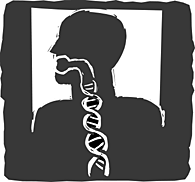Thought for food
 Tzigane
Tzigane |
|
If we are what we eat, then Don Smith is a zen guru guiding us on a path of self-knowledge. Well, perhaps more of a Freudian psychologist, helping us delve deeper into the sometimes frightening id that lurks within every Big Mac and fries we eat.
Professor Smith is the organizer of a lecture series called "Food for Thought," that aims to explore the links between science, agriculture, the environment and your dinner.
Smith holds the "New Sun" endowed professorship at Macdonald Campus, for which the plant science professor organizes a speakers series every year. Most years the topics are fairly focused, he explained, but this year he decided to open up the topic.
"In the course of various readings, it occurred to me that there were only four or five key issues for agriculture and environment," he said.
Those issues include such hot-button topics as genetically modified foods, climate change, population pressure, biodiversity, food safety and water scarcity. Important as all of these topics are, Smith pointed out that the public is often left in an information vacuum. For that reason the lecture series aimed for a wide audience.
"I would hope that they have a broad general view of the issues that are associated with food production and the environment at this time. For someone who would do all six it would be educational," he said.
"There's a certain amount of misinformation [out there], but in many cases there was no information. We try to identify people who can bring a lot of information to bear on the topic. They're people who are doing good work in the area and are sufficiently passionate."
One of those people was Marc Fortin, a colleague of Smith's in Plant Science who recently chaired the Royal Society of Canada's expert panel on the future of food biotechnology.
Fortin kicked off the "Food for Thought" lecture series with his talk – "Darwin at Dinner" – on September 17. He addressed how we can assess the risks involved in eating genetically modified (GM) foods.
"The introduction of GMOs (genetically modified organisms) has introduced new tensions between regulators, companies and the public. The consumer feels they have the right to know what's on their plate, the government feels that if they've certified something as safe then that should be good enough. Companies feel that these foods are not different, and scientists are not sure of the equivalence between traditional food and genetically modified food," said Fortin, explaining the different forces at play in the debate.
Right now there is no agreed upon way to label GM foods. A European system only identified one in 118, while Greenpeace has identified 68 GM foods for sale in Canada.
"We have an obligation to use the best scientific tools available today to assess the products of biotechnology," said Fortin, saying that so far we aren't doing that.
"We're making safety assessment after the fact. One argument for the biotech lobby is that these foods have been on the market for seven years and we haven't been able to link GM foods to human health effects."
This doesn't necessarily make sense – with no way to trace which foods are GM, there's no way to trace which might prompt health effects.
Fortin said that he was happy with how his talk went, and with the response he received.
"I had an extremely interesting exchange with the audience after the lecture. People have concerns and they want to know how we have come to this situation that GM food is on the market, when it's not clear how safe it is," he said.
"The feedback we're getting is that there is a need for solid scientific information. [The public] wants to know more about current issues."

